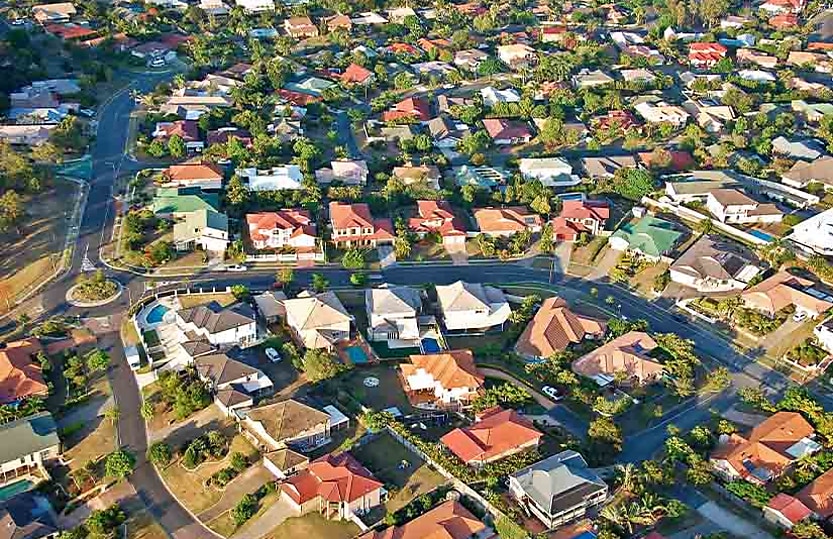Victorian land tax changes ‘to hit small business, renters’

Increased land taxes will ultimately be passed onto renters and small business, real estate groups warn.
Landlords impacted by the various land tax changes announced in the Victorian budget will pass the increased costs on to tenants in any way they can, Pitcher Partners and Real Estate Institute of Victoria have warned.
The new land tax measures will impact a range of property owners, small and large, despite statements by the Treasurer indicating that households and small businesses would be protected from the changes introduced as part of the levy, said Pitcher Partners.
As part of the budget measures, the tax-free threshold for general land tax rates will be cut from $300,000 to $50,000, subjecting more property owners to land tax.
A temporary fixed change of $500 will be levied on general taxpayers with total $50,000 and $100,000 and a charge of $975 will be levied on general taxpayers with total landholdings between $100,000 and $300,000.
For general (non-trust) taxpayers with total landholdings above $300,000 and trust taxpayers with total landholdings above $250,000, land tax rates will increase by $975 plus 0.1 per cent of the taxable value of their landholdings.
Cost of new measures to increase over time
Analysis by the Property Investment Professionals of Australia (PIPA) indicates a Victorian investor with land holdings worth $1 million will be slugged about $2000 in extra land tax per year or about $20,000 over the next decade.
“However, the tax will continue to increase along with land values throughout that time, so the cost to investors will likely be much higher,” PIPA said.
Pitcher Partners has also undertaken analysis on the changes.
“A couple who owns two properties in Victoria, one being their home and another being an investment apartment with a site value of $120,000 would not be paying any land tax under the current schedule of land tax rates,” partners Irina Tan and Craig Whitman stated.
“Under the new land tax measures, from the 2024 land tax year (based on property ownership as at 31 December 2023), they would become subject to a fixed land tax charge of $975 per year in relation to the apartment, which would apply on top of existing costs such as council rates and insurance.”
The land tax changes will also increase costs for building and construction businesses, the accounting firm warned.
“For example, a Victorian property builder looking to build homes for various families and first home buyers on a parcel of land with an overall site value of $5m would currently pay $78,975 in land tax,” it said.
“Under the announced land tax measures as we understand them, from the 2024 land tax year the builder is expected to face an increase in land tax of more than $5,000 per year (subject to movements in the site value of the land).”
This will further add to cost pressures on the builder and potentially risk the financial position of the builder.
“[This] could lead to broader adverse consequences for the various families and first home buyers who may have contracted with them,” Ms Tan said.
REIV fears small businesses will also be impacted as land tax is not just payable on residential but also on commercial and industrial property.
Consequences for investors and renters
PIPA chair Nicola McDougall said the policy could potentially lead to an exodus of investors in Victoria who are already struggling with significantly higher mortgage repayments.
“It does seem like the Victorian government has taken an illogical page out of the Queensland’s government’s ill-fated and investor-focused land tax playbook from last year, and we all know how that worked out for them,” Ms McDougall said.
Ms McDougall said it was illogical for any state government would implement such a policy during a prolonged critical undersupply of rental properties.
“It beggars belief that at a time of record low vacancy rates, rising rents, and increasing overseas migration – many of whom will initially choose to live in Melbourne but may find nowhere to rent – that the Victorian government would even consider implementing such a ridiculous policy,” Ms McDougall said.
“This is yet another example of politicians having no understanding of how bad policy impacts investor behaviour, especially those aspirational and hardworking property owners who are set to be slugged the most by this latest financial impost.”
Real Estate Institute of Victoria (REIV) chief executive Quentin Kilian agreed the announcements will ultimately drive mum and dad investors out of the market as the cost of maintaining a rental property outweighs future-proofing family finances.
“The biggest impact will be felt by people with smaller holdings as the tax free threshold drops from $300,000 to just $50,000, disproportionately impacting everyday Victorians investing to secure their future,” he said.
Pitcher Partners said while the budget contained more positive land tax measures for beneficiaries of a special disability trust, land protected by a conservation covenant with Trust for Nature and delayed construction or renovation of homes due to builder insolvency, these have been overshadowed by the more significant changes.
“Together with other measures announced in the Budget and the broader economic circumstances, we fear that Victoria may cement its position as the highest-taxing state. Not only that, but also the hardest state in Australia to do business, invest, and for the renters to live in,” the accounting firm stated.
About the author

